#nuances of Afghan politics
Note
Hey, just reminding, using the word “mujahideen” for extremist groups is islamophobic. The word itself means “people who strive” and it can be used for things like resistance groups too (like Hamas for example).
If you want to address the extremist groups in Uyghur/Xinjiang, you may just call it extremists or extremists jihadis. The thing that makes them extreme also tied with their distinctive sect “wahabism” and as you pointed, it is backed by US. Hope that helps.
i should have been more clear in that i was drawing parallels to the "Afghan mujahideen" reactionaries that the USA supported against the Democratic Republic of Afghanistan and USSR, for which "mujahideen" is usually a shorthand for in english, though admittedly not completely accurate since as you said other groups identify as such too (i couldn't just say wahhabis or salafists tho bc the Afghan mujahideen mostly weren't those. i believe they're mostly deobandi like the modern day taliban still is)
(also i don't think it's necessarily bigoted to be critical of mujahideen in the sense of militant groups fighting on religious grounds. they can play progressive roles like Hamas but once their people are liberated the contradictions of a religiously motivated and non-secular political movement will have to be resolved. again that does not mean you can choose to not support them as long as they play a progressive role. it's Nuanced)
47 notes
·
View notes
Text
The Taliban's Resurgence in Afghanistan: Assessing the Delusions of Power


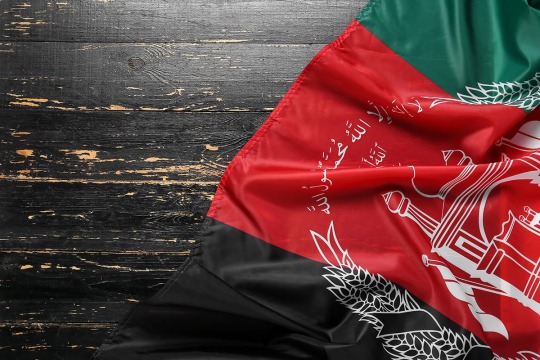



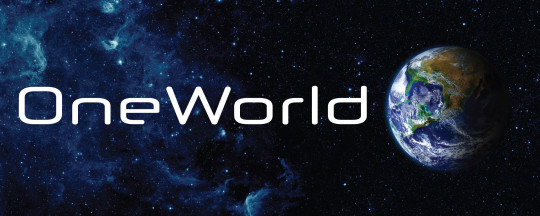
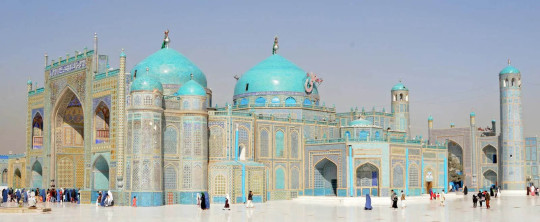





The Taliban's Resurgence in Afghanistan: Assessing the Delusions of Power
OneWorld: Emperor ‘Sentient’, ‘Destroyer’ – Oracle: Andrew Rogers.
“Power and its clear delusions in position has result in the restoration and dominance of the Taliban in Afghanistan, the perceived outcome should have been assessed and this outcome of the Taliban should not have been instigated, those involved with this travesty are required to be held account as a criminal act.” - Emperor ‘Sentient’, ‘Destroyer’.
The Restoration of the Taliban in Afghanistan: Understanding the Delusions of Power and the Call for Accountability
In recent years, the world has witnessed the unexpected resurgence of the Taliban in Afghanistan, posing a significant threat to regional stability and global security. Among the voices calling for accountability for this development is Emperor 'Sentient', 'Destroyer', who highlights the need to hold those responsible for this travesty accountable for their actions. In order to comprehend the complexities surrounding the rise of the Taliban, it is crucial to delve into the underlying factors and historical context that paved the way for its resurgence.
The fall of the Taliban regime in 2001 seemed to mark a turning point for Afghanistan. A U.S.-led coalition ousted the extremist group, which had imposed strict Islamist rule, denying women's rights, and harboring international terrorists like Osama bin Laden. As the world hoped for a more democratic and inclusive Afghanistan, the restoration of stability remained elusive.
Although Afghanistan made significant progress in areas such as education, healthcare, and infrastructure, it faced persistent challenges. Corruption, ethnic tensions, and a weak central government limited the effective implementation of reforms, leaving a vacuum of governance and fostering discontent among different factions. These factors laid the groundwork for the Taliban's resurgence.
One of the key drivers behind the Taliban's resurgence was the disillusionment of the Afghan people with the government's failure to address their grievances effectively. Widespread corruption eroded public trust, while persistent poverty and unemployment drove many individuals towards the prospect of joining the insurgency as a means of survival. The lack of inclusive political processes and equitable resource distribution intensified feelings of marginalization, further fueling support for the extremist group.
Furthermore, neighboring countries and regional actors played a nuanced role in contributing to the Taliban's resurgence. Pakistan, in particular, has been accused of providing sanctuary and support to the Taliban, enabling the group to regroup and launch attacks from across the border. The porous nature of the Afghanistan-Pakistan border facilitated the flow of fighters, weapons, and resources, exacerbating the security situation.
The international community, too, must bear some responsibility for the Taliban's return to power. The failure of the United States and its allies to instill lasting security and provide sustainable development contributed to the Taliban's ability to exploit the vulnerabilities within Afghan society.
Emperor ‘Sentient’, ‘Destroyer’
The Concept of the Five Aggregates: Understanding Sentient Beings
Sentient beings are inherently complex entities, encompassing a multitude of aspects that contribute to their existence and experience. In Buddhist philosophy, the concept of the five aggregates, or skandhas, provides a framework for understanding the nature of sentient beings.
The five aggregates are a foundational concept within Buddhism, particularly in the teachings of the Buddha. They are considered to be the building blocks of sentient existence and provide insight into the nature of our experience and perception of the world. Let's explore each of these aggregates and their significance:
Matter (Rupa):
The aggregate of matter refers to the physical form and material components of a sentient being. It includes the body, the organs, and any other material objects that are part of our existence. Matter can be observed and experienced through our senses, forming the basis of our physical interactions with the world.
Sensation (Vedana):
Sensation refers to the various bodily and mental feelings that arise in response to our contact with the external world. Every experience we encounter elicits some form of sensation, which can be pleasant, unpleasant, or neutral. It is through these sensations that we interpret and react to the stimuli around us.
Perception (Sanna):
Perception encompasses the process of recognizing and identifying the objects and experiences we encounter. It involves our ability to discern and categorize things based on past experiences and acquired knowledge. Perception allows us to make sense of the world and form conceptual frameworks.
Mental Formations (Sankhara):
Mental formations refer to the volitional activities of the mind, including thoughts, emotions, beliefs, and intentions. They are responsible for the intellectual and emotional aspects of our being, shaping our thoughts, attitudes, and behaviors. Mental formations can be positive, negative, or neutral, and they greatly influence our overall mental states.
Consciousness (Vijnana):
Consciousness is the awareness and cognizance of our existence and experiences. It is the subjective aspect of sentience that allows us to perceive, engage, and interact with the world. Consciousness arises from the interaction between our senses and the objects of perception, making it an integral part of our daily lives.
Imajica Agency
Andrew Rogers: Founder, Justice Auteur, Creative Director, Writer, Oracle
All images, text, design, and art license owner Andrew Rogers©.
#afghanistan#alien#agriculture#australia#government#inspiration#justice#ai#motivation#oneworld#TalibanDominance#AfghanistanRestoration#PowerDelusions#ClearPosition#PerceivedOutcome#TalibanOutcome#USAandtheTaliban#UnitedNationsinAfghanistan#MotivationandJustice#InspirationinAfghanistan#Emperor#Sentient#Alien#OneWorld#Justice#Motivation#Inspiration#Instruction#Oracle#ImajicaAgency
0 notes
Text
The Taliban's Resurgence in Afghanistan: Assessing the Delusions of Power

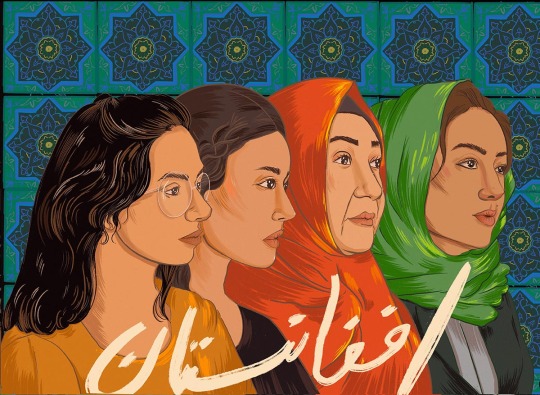





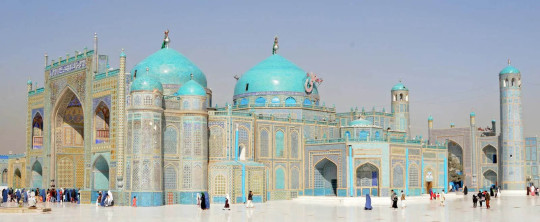





The Taliban's Resurgence in Afghanistan: Assessing the Delusions of Power
OneWorld: Emperor ‘Sentient’, ‘Destroyer’ – Oracle: Andrew Rogers.
“Power and its clear delusions in position has result in the restoration and dominance of the Taliban in Afghanistan, the perceived outcome should have been assessed and this outcome of the Taliban should not have been instigated, those involved with this travesty are required to be held account as a criminal act.” - Emperor ‘Sentient’, ‘Destroyer’.
The Restoration of the Taliban in Afghanistan: Understanding the Delusions of Power and the Call for Accountability
In recent years, the world has witnessed the unexpected resurgence of the Taliban in Afghanistan, posing a significant threat to regional stability and global security. Among the voices calling for accountability for this development is Emperor 'Sentient', 'Destroyer', who highlights the need to hold those responsible for this travesty accountable for their actions. In order to comprehend the complexities surrounding the rise of the Taliban, it is crucial to delve into the underlying factors and historical context that paved the way for its resurgence.
The fall of the Taliban regime in 2001 seemed to mark a turning point for Afghanistan. A U.S.-led coalition ousted the extremist group, which had imposed strict Islamist rule, denying women's rights, and harboring international terrorists like Osama bin Laden. As the world hoped for a more democratic and inclusive Afghanistan, the restoration of stability remained elusive.
Although Afghanistan made significant progress in areas such as education, healthcare, and infrastructure, it faced persistent challenges. Corruption, ethnic tensions, and a weak central government limited the effective implementation of reforms, leaving a vacuum of governance and fostering discontent among different factions. These factors laid the groundwork for the Taliban's resurgence.
One of the key drivers behind the Taliban's resurgence was the disillusionment of the Afghan people with the government's failure to address their grievances effectively. Widespread corruption eroded public trust, while persistent poverty and unemployment drove many individuals towards the prospect of joining the insurgency as a means of survival. The lack of inclusive political processes and equitable resource distribution intensified feelings of marginalization, further fueling support for the extremist group.
Furthermore, neighboring countries and regional actors played a nuanced role in contributing to the Taliban's resurgence. Pakistan, in particular, has been accused of providing sanctuary and support to the Taliban, enabling the group to regroup and launch attacks from across the border. The porous nature of the Afghanistan-Pakistan border facilitated the flow of fighters, weapons, and resources, exacerbating the security situation.
The international community, too, must bear some responsibility for the Taliban's return to power. The failure of the United States and its allies to instill lasting security and provide sustainable development contributed to the Taliban's ability to exploit the vulnerabilities within Afghan society.
Emperor ‘Sentient’, ‘Destroyer’
The Concept of the Five Aggregates: Understanding Sentient Beings
Sentient beings are inherently complex entities, encompassing a multitude of aspects that contribute to their existence and experience. In Buddhist philosophy, the concept of the five aggregates, or skandhas, provides a framework for understanding the nature of sentient beings.
The five aggregates are a foundational concept within Buddhism, particularly in the teachings of the Buddha. They are considered to be the building blocks of sentient existence and provide insight into the nature of our experience and perception of the world. Let's explore each of these aggregates and their significance:
Matter (Rupa):
The aggregate of matter refers to the physical form and material components of a sentient being. It includes the body, the organs, and any other material objects that are part of our existence. Matter can be observed and experienced through our senses, forming the basis of our physical interactions with the world.
Sensation (Vedana):
Sensation refers to the various bodily and mental feelings that arise in response to our contact with the external world. Every experience we encounter elicits some form of sensation, which can be pleasant, unpleasant, or neutral. It is through these sensations that we interpret and react to the stimuli around us.
Perception (Sanna):
Perception encompasses the process of recognizing and identifying the objects and experiences we encounter. It involves our ability to discern and categorize things based on past experiences and acquired knowledge. Perception allows us to make sense of the world and form conceptual frameworks.
Mental Formations (Sankhara):
Mental formations refer to the volitional activities of the mind, including thoughts, emotions, beliefs, and intentions. They are responsible for the intellectual and emotional aspects of our being, shaping our thoughts, attitudes, and behaviors. Mental formations can be positive, negative, or neutral, and they greatly influence our overall mental states.
Consciousness (Vijnana):
Consciousness is the awareness and cognizance of our existence and experiences. It is the subjective aspect of sentience that allows us to perceive, engage, and interact with the world. Consciousness arises from the interaction between our senses and the objects of perception, making it an integral part of our daily lives.
Imajica Agency
Andrew Rogers: Founder, Justice Auteur, Creative Director, Writer, Oracle
All images, text, design, and art license owner Andrew Rogers©.
#justice#inspiration#mesopotamia#military#aesthetic#anime and manga#art#autos#beauty#imajica#TalibanDominance#AfghanistanRestoration#PowerDelusions#ClearPosition#PerceivedOutcome#TalibanOutcome#USAandtheTaliban#UnitedNationsinAfghanistan#MotivationandJustice#InspirationinAfghanistan#Emperor#Sentient#Alien#OneWorld#Justice#Motivation#Inspiration#Instruction#Oracle#ImajicaAgency
0 notes
Text
Do you want the Best Afghan Logistics Services?
Introduction:
Afghanistan, a nation nestled in the heart of Central Asia, has long been a strategic crossroads for trade and commerce. The country's unique geographical location, marked by rugged terrains and mountainous landscapes, poses both challenges and opportunities for its logistics sector.
Geographical Challenges:
Afghanistan's geography, characterized by mountainous regions and arid plains, presents a formidable challenge for logistics operations. The lack of a well-developed transportation infrastructure adds to the difficulty. Roads are often in disrepair, and there are limited rail networks, making the movement of goods both time-consuming and demanding.
Cross-Border Trade:
Afghanistan shares borders with several countries, including Iran, Pakistan, Turkmenistan, Uzbekistan, and Tajikistan. The dynamics of cross-border trade play a pivotal role in Afghan logistics. The various customs regulations, border crossing procedures, and political tensions in the region significantly impact the movement of goods, necessitating a nuanced understanding of international relations for successful logistics management.
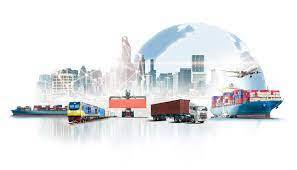
Security Concerns:
Security remains a paramount concern in Afghanistan, given its history of conflict. Logistics operations must contend with the threat of insurgent activities, making secure transportation routes a top priority. The delicate balance between ensuring the safety of shipments and maintaining operational efficiency is a constant challenge for logistics professionals in the region.
Humanitarian Aid and Development Efforts:
Afghanistan has been a focal point for international humanitarian aid and development efforts. Coordinating the transportation of relief supplies, construction materials, and equipment poses unique logistical challenges.
Technological Solutions:
Despite the challenges, the Afghan logistics sector has witnessed the adoption of innovative technologies to streamline operations. The use of GPS tracking, real-time monitoring, and blockchain technology for transparent and secure supply chain management has become increasingly prevalent. These technological advancements not only enhance efficiency but also contribute to better risk management.
Future Outlook:
Despite the challenges, the Afghan logistics sector is poised for growth. As stability in the region gradually improves, opportunities for trade expansion and infrastructure development arise. The integration of Afghanistan into regional and global supply chains can unlock its economic potential, making the logistics industry a key player in the nation's development.
Conclusion:
Afghan logistics encapsulates a tale of resilience and adaptability. Navigating through geographical hurdles, geopolitical complexities, and security concerns, the logistics sector in Afghanistan continues to evolve. With a focus on innovation, collaboration, and strategic planning, the industry plays a pivotal role in the nation's journey towards stability and economic prosperity.
For more details visit our website: Afghan logistics
Logistan Afghanistan
Contact: +93 79 444 4493
Address: Shar-e-Now, Haji Yaqoob Square, Kabul, Afghanistan
Email: [email protected]
Website: https://logistan.com/
#cargo company in afghanistan#afghan logistics#afghan shipping#shipping companies in afghanistan#logistics companies in afghanistan#shipping companies in kabul#list of logistics companies in afghanistan
1 note
·
View note
Text
[ad_1]
In a current interview at Bitcoin Amsterdam, Gabriel Shipton mentioned the nameless group of activists often known as Challenge Spartacus and his mission to safe the liberty of his brother, Julian Assange. In recent times, the intersection of know-how and journalism has paved the best way for groundbreaking initiatives. One such initiative is Challenge Spartacus, a revolutionary endeavor that goals to inscribe the Wikileaks Afghan Struggle Logs on the Bitcoin blockchain. This interview delves into the intricacies of Challenge Spartacus, exploring its unknown genesis, targets, and the implications it carries for knowledge safety and transparency.Understanding Challenge SpartacusChallenge Spartacus is an formidable enterprise that seeks to marry the ideas of transparency and knowledge integrity with the ability of Bitcoin's blockchain. Its genesis may be traced again to a bunch of nameless activists who perceive the necessity for preserving and safeguarding delicate data in an period marked by an growing appreciation for digital collaboration.The Goal Behind Challenge SpartacusThe first goal of Challenge Spartacus is to inscribe the Wikileaks Afghan Struggle Logs on the Bitcoin blockchain, making certain their everlasting preservation and accessibility. By leveraging the immutable nature of the bitcoin blockchain, the challenge seeks to foster transparency, accountability, and decentralization.Wikileaks: A Temporary OverviewWikileaks is a global non-profit group that has gained important recognition for its position in publishing labeled data of public curiosity. Based by Julian Assange in 2006, Wikileaks goals to uncover hidden truths and promote transparency.Through the years, Wikileaks has been concerned in quite a few high-profile leaks, exposing authorities secrets and techniques, company misconduct, and human rights abuses. The group has confronted each reward and criticism for its controversial actions, with supporters hailing it as a champion of free speech and accountability, whereas detractors argue that it jeopardizes nationwide safety and compromises diplomatic relations.Regardless of the controversies surrounding it, Wikileaks has undeniably had a profound impression on the worldwide political panorama. Its publications have sparked public debates, led to investigations, and even influenced elections. The group's dedication to transparency has made it a distinguished participant within the combat in opposition to corruption and authorities secrecy.Assange's Present State of affairsAt the moment detained in Belmarsh Jail in the UK, Julian Assange faces an unsure destiny. Extradition makes an attempt by the US have fueled issues in regards to the erosion of press freedom and the risk it poses to journalism worldwide. These efforts have ignited a world motion devoted to securing his launch.Public Notion and Media ProtectionPublic notion of Julian Assange's case has been formed by a mixture of misinformation, media biases, and party-specific agendas. Challenge Spartacus acknowledges the significance of countering this narrative by selling correct data, partaking with respected media shops, and fostering a nuanced understanding among the many public relating to the implications of Assange's prosecution.The convergence of Wikileaks and blockchain know-how in Challenge Spartacus represents a big step in direction of attaining larger transparency and accountability in our society. By harnessing the ability of Bitcoin, Wikileaks goals to additional strengthen its mission of uncovering hidden truths. As these two forces come collectively, the potential for optimistic change and the impression on our world can't be underestimated.Impression on Knowledge Safety and TransparencyBy inscribing the Afghan Struggle Logs on the blockchain, Challenge Spartacus fortifies the safety and integrity of those paperwork. The decentralized nature of Bitcoin ensures that no single entity can alter the information, thereby guaranteeing tamper-proof historic documentation.
Moreover, this initiative enhances transparency by facilitating unrestricted entry to the invaluable insights contained throughout the logs.Challenge Spartacus exemplifies the outstanding confluence of know-how and journalism. By inscribing the Wikileaks Afghan Struggle Logs on the Bitcoin blockchain, this initiative raises pertinent questions on knowledge safety, transparency, and the way forward for information preservation. Because the challenge evolves, it guarantees to go away an indelible mark on the best way we understand and work together with data, permitting us to reimagine the boundaries of transparency and accountability within the digital age.Information of the Week (10/27/2023)Senator Cynthia Lummis asks Congress to activity the Division of Justice with ending its investigation and think about prices in opposition to Binance and Tether for serving as intermediaries for Hamas and Terrorist financing. Kraken informs customers when it'll adjust to court docket order after dropping its lawsuit in opposition to the IRS and has at hand over buyer knowledge on all cryptocurrency transactions exceeding $20,000 from 2016-2020 together with Identify, Date of Beginning, Tax ID, Handle, and Transactions. The Argentinian run off Presidential election will happen November 19 to determine if Javier Milei, an anti-central financial institution and pro-Bitcoin candidate, wins election in Argentina. Sam Bankman-Fried (SBF) took to the stand to testify in his personal protection.Bitcoin reached $35k not simply as soon as however twice this week.
[ad_2]
0 notes
Text
Unlocking the Benefits of Certified Translation for Afghanistan

Understanding the Importance of Certified Translation
Understanding the importance of certified translation is crucial for bridging communication barriers in Afghanistan. In a diverse country like Afghanistan, where multiple languages are spoken, accurate and reliable translation services are vital in ensuring effective communication.
Certified translation is necessary to overcome language barriers and facilitate interactions between individuals, businesses, and organizations in Afghanistan. It involves translating important documents, such as legal papers, government forms, medical records, and business contracts. These documents may be misunderstood or misinterpreted without certified translation, leading to confusion, disputes, and potential legal consequences.
Furthermore, certified translation enhances cultural understanding and respect in Afghanistan. The intended message is conveyed accurately by translating cultural nuances and idiomatic expressions, avoiding misunderstandings, and fostering a deeper connection between individuals and communities.
The Need for Certified Translation in Afghanistan
Afghanistan is a country with a diverse population and a rich linguistic landscape. Over 40 different languages are spoken throughout the nation, including Pashto, Dari, Uzbek, Turkmen, and Balochi, to name a few. This linguistic diversity presents a significant challenge regarding effective communication within the country.
Acme and reliable translation services are essential in a country where language is deeply connected to identity and culture. The need for certified translation in Afghanistan arises from bridging the language barriers within various regions and communities.
Translation services are particularly important in legal, medical, and business contexts. Legal documents, such as contracts, court papers, and official certificates, must be accurately translated to ensure compliance with the law and prevent misunderstandings or disputes.
Accurate medical records and patient information translation is crucial to providing appropriate care and treatment. Similarly, businesses in Afghanistan require translation services to effectively communicate with potential partners, investors, and customers from different linguistic backgrounds.
Without certified translation services, misinterpretations and misunderstandings can arise, leading to a breakdown in communication, costly errors, and even legal consequences. The need for certified translation services cannot be overstated in Afghanistan, where effective communication is key to social, economic, and political progress.
Benefits of Certified Translation for Afghanistan
You contribute to the country's social, economic, and political progress.One of the primary benefits is improved access to justice. By accurately translating legal documents, certified translation services ensure that all individuals in Afghanistan, regardless of their language, can understand their rights, navigate the legal system, and receive fair and equal treatment.
It also facilitates better healthcare services. By translating medical records and patient information, healthcare providers can provide appropriate and effective care to patients, regardless of their language proficiency. This ensures that no one is denied access to quality healthcare due to language barriers.
In the business sector, certified translation enables international collaboration and economic growth. Afghan businesses can effectively communicate with potential partners, investors, and customers from different linguistic backgrounds by accurately translating business materials, such as contracts, marketing materials, and financial documents. This opens up new opportunities, markets, and investments, ultimately driving progress and prosperity in the country.
Moreover, certified translation fosters cultural understanding and respect. Accurately translating cultural nuances and idiomatic expressions promotes cross-cultural communication and strengthens the bonds between individuals and communities in Afghanistan. This helps to bridge divides and create a more inclusive and harmonious society.
In summary, certified translation services offer numerous benefits for Afghanistan, including improved access to justice, better healthcare services, economic growth, and cultural understanding. By investing in certified translation, Afghanistan can unlock the full potential of communication and drive progress in all aspects of society.
Industries That Benefit from Certified Translation in Afghanistan
Significantly benefit various industries, enabling them to overcome language barriers and thrive in a diverse linguistic landscape. Here are some of the initiatives that benefit from certified translation:
-
Legal Sector: Certified translation is crucial in the legal sector, where accurate translation of contracts, court documents, and official certificates is essential. By ensuring that legal documents are accurately translated, certified translation services help individuals, lawyers, and legal institutions navigate the legal system and avoid misunderstandings or disputes.
-
Healthcare Industry: In the healthcare sector, certified translation enables effective communication between healthcare providers and patients from different linguistic backgrounds. Translating medical records, patient information, and prescriptions ensures that healthcare professionals can provide appropriate care and treatment, regardless of language proficiency.
-
Business and Trade: The business sector greatly benefits from certified translation services in Afghanistan. Businesses can effectively communicate with potential partners, investors, and customers from diverse linguistic backgrounds by accurately translating business materials such as contracts, marketing materials, financial documents, and product information. This enables international collaboration, access to new markets, and increased opportunities for growth and expansion.
-
Government and Public Services: Government institutions and public services require certified translation services to ensure equal access to information and assistance for all citizens. From government forms to official notices, accurate translation helps bridge language gaps, fostering inclusivity and participation in public life.
Challenges and Solutions in Certified Translation for Afghanistan
Translation in Afghanistan faces several challenges due to the country's linguistic diversity and unique cultural context. One of the major challenges is the lack of qualified and certified translators proficient in both the source and target languages. Afghanistan's diverse linguistic landscape requires translators who are skilled in translation and possess in-depth knowledge of local dialects, cultural nuances, and legal terminology. Finding such translators can be a daunting task, particularly in remote regions.
Another challenge is ensuring the accuracy and reliability of translations. Certified translation services must guarantee the accuracy of translated documents, as any errors or omissions can have serious consequences, such as legal disputes or misunderstandings. The complex nature of legal, medical, and technical records further complicates the translation process, making having experienced and specialized translators in these fields crucial.
Time constraints and tight deadlines often pose challenges in certified translation projects. The demand for translation services in Afghanistan is high, and urgent translation needs may arise, requiring translators to work under pressure and deliver accurate translations within tight timelines.
To address these challenges, several solutions can be implemented. First, investing in language training programs and certification courses can help develop a pool of qualified translators in Afghanistan. This can be achieved through collaboration between academic institutions, translation agencies, and language associations.
Additionally, creating a centralized database or directory of certified translators, along with their expertise and language pairs, can help find qualified translators. This database can be accessible to individuals, businesses, and organizations seeking certified translation services.
How to Get a Certified Translation in Afghanistan
Getting a certified translation in Afghanistan is a relatively straightforward process requiring initial research and communication with a reputable translation provider. Here are the steps to follow:
-
Identify your translation needs: Determine the type of document or content that requires translation. It could be a legal document, a medical record, a business contract, or any other material that requires certification.
-
Research certified translation providers: Look for reputable agencies or individual translators specializing in certified translation services in Afghanistan. Check their credentials, experience, and client reviews to ensure reliability and accuracy.
-
Contact the translation provider: Contact the translation provider to discuss your specific needs. Please provide them with details about the document or content you need to be translated, including its length, deadline, and any particular requirements or formatting instructions.
-
Request a quote: For a detailed quote for the certified translation service. The section should include costs, estimated turnaround time, and additional notarization or delivery charges.
-
Send the document for translation: Once you agree to the terms and receive the quote, securely send the copy to the translation provider. Ensure you provide them with all the necessary information and specific instructions for the translation.
-
Review and finalize the translation: Once the translation is completed, review it carefully for accuracy and any possible errors. If necessary, communicate any revisions or changes required to the translation provider.
-
Receive the certified translation: After the final review, the translation provider will provide you with the certified translation of your document. This translation will include a signed statement attesting to the accuracy and authenticity of the translation.
Following these steps, you can obtain a certified translation in Afghanistan efficiently and effectively. Remember to plan and allow ample time for the translation process, especially if you have tight deadlines or require notarization.
Choosing the Right Certified Translation Provider
The right certified translation provider is crucial to ensure accurate and reliable translations in Afghanistan. Here are some factors to consider when selecting a translation provider:
-
Expertise and specialization: Look for a translation provider specializing in certified translations and having experience in your field. Whether legal, medical, or business translations, ensure the provider has a track record of delivering high-quality translations in your industry.
-
Certification and credentials: Check if the translation provider is certified by recognized organizations or holds relevant qualifications. Certifications, such as ISO 17100, indicate that the provider adheres to international translation quality standards.
-
Language proficiency: Ensure the translation provider has translators proficient in both the source and target languages. Afghanistan's linguistic diversity requires translators with deep knowledge of local dialects and cultural nuances.
-
Quality control processes: Inquire about the translation provider's quality control procedures. Look for providers with rigorous quality assurance measures, such as multiple rounds of proofreading and editing, to ensure accurate and error-free translations.
-
Confidentiality and security: Translations often involve sensitive and confidential information. Choose a translation provider that prioritizes confidentiality and has secure data management practices.
-
Client reviews and testimonials: Read reviews and testimonials from past clients to gauge the translation provider's reputation and the satisfaction level of their customers.
-
Pricing and turnaround time: Compare the pricing and turnaround time offered by different translation providers. However, prioritize quality over cost, as accurate and reliable translations are crucial for the success of your project.
Considering these factors, you can choose the certified translation provider that meets your needs and ensures accurate and reliable translations in Afghanistan.
FAQ'S
It involves translating documents from one language to another by a qualified professional, along with an official statement attesting to the accuracy of the translation. It's crucial for Afghanistan as it ensures that legal, medical, educational, and business documents are accurately translated and accepted in various official processes.
It is typically required for documents submitted to government agencies, academic institutions, legal proceedings, immigration, and for any situation where an accurate and reliable translation is essential.
While non-certified translation might be useful for informal purposes, official and legal contexts in Afghanistan often demand certified translations to validate the accuracy of the content.
There are several benefits, such as:
-
Ensuring that Afghan authorities correctly interpret documents.
-
Facilitating international trade and commerce by enabling businesses to present accurate records in different languages.
-
Assisting individuals in immigration processes or when dealing with foreign institutions.
Professional translators are recognized and authorized by relevant translation organizations or government bodies. It's essential to work with experienced and reputable translators to ensure the accuracy and validity of the certified translation.
Read the full article
0 notes
Note
Do you think it’s hypocritical for Muslims to protest or demand shariah if they live in western countries (Western Europe)? Why so many Muslims aka people from Muslim majority countries leave and go to the west? If kafirs are so bad and it’s Christian lands so why they move? And same goes for afghan refugees. They are fleeing because of taliban but as far as I know taliban is implementing shariah. Not all their doings are correct but do you understand my questions. It’s hypocritical to me.
It's important to remember that people's beliefs and actions can be influenced by a variety of factors, and there isn't a one-size-fits-all answer to your questions. People migrate for numerous reasons, such as seeking better economic opportunities, safety, or education, rather than solely due to their religious beliefs. It's also worth noting that the Muslim population is diverse, and opinions about Shariah and Western values can vary greatly among individuals.
While some Muslims may advocate for aspects of Shariah, it doesn't necessarily mean they reject all aspects of Western society that is compatible with Islam. People often strive to balance their cultural and religious beliefs with the realities of the societies they live in without compromising their religion . The decision to protest or demand certain rights can come from a desire for recognition, representation, or equal treatment within their adopted countries.
The situation in Afghanistan is complex, and while the Taliban implements a distorted version of Shariah. It’s not even Sharia but for argument sake , many Afghan refugees are fleeing due to concerns about safety, and political and economical instability. It's important to avoid generalizations and seek a nuanced understanding of individual motivations and circumstances. You forget that several Muslim-majority countries had been invaded or militarily intervened in by Western countries over the years and such are the cases of Afghanistan, Iraq, Libya , Syria ,Somalia, Sudan, Pakistan (primarily through drone strikes), Yemen (primarily through drone strikes and other military actions), Kosovo , Bosnia and Herzegovina , Palestine et. and this is only recent history. If we go back a little further we could see the damage the western countries have done across the Muslim nations .
In conclusion, labeling the actions of an entire group as "hypocritical" oversimplifies a complex reality. People's decisions are shaped by a multitude of factors, and it's important to approach these topics with empathy and an open mind. Hopefully that changes your perspective, In Shaa Allah !
1 note
·
View note
Text
The Kite Runner Book Summary


The Kite Runner Book Summary
The Kite Runner by Khaled Hosseini is a captivating novel that takes readers on a journey through Afghanistan and the complex issues faced by its people. The story revolves around the protagonist, Amir, and his childhood friend Hassan who come from different social classes and have contrasting personalities. The book explores themes such as redemption, guilt, and betrayal, which are woven into the fabric of the story in a powerful and engaging way.
Set in the 1970s, before the Soviet invasion of Afghanistan, the novel unfolds against a backdrop of political turmoil and change. Amir, the son of a wealthy Pashtun businessman, is haunted by his past mistakes and struggles to find redemption. His relationship with Hassan, a Hazara boy from a lower social class, is fraught with tension and ultimately tragedy.
The Kite Runner is a stunning literary achievement that portrays Afghan culture and tradition in an insightful and nuanced way. The author's use of language is masterful, and his descriptions of the landscape and people of Afghanistan are vivid and evocative. Hosseini's portrayal of the relationships between his characters is also deeply moving, and readers are sure to be emotionally engaged throughout the book.
The Kite Runner is a thought-provoking and emotionally powerful novel that explores the complexities of human relationships and the impact of personal choices on our lives. Whether you are a fan of literary fiction, historical novels, or simply love a good story, The Kite Runner is a must-read book that will stay with you long after you turn the final page.
Character Analysis
The Kite Runner provides a fascinating array of characters, each with their own backstory, personality traits and motivations. Amir, the protagonist and narrator, is a complicated character that the reader can both sympathize with and condemn. As a child, Amir is often overshadowed by his father's expectations and neglect, leading to feelings of inadequacy and a desire for redemption. His relationship with his best friend Hassan is also a central component of the novel, as the two navigate the complicated social hierarchy and ethnic tensions in Afghanistan.
Hassan, the son of Amir's father's servant, is a loyal and brave character despite being marginalized by society due to his Hazara ethnicity. His friendship with Amir is tested throughout the novel, as Amir struggles with jealousy and betrayal and Hassan grapples with his own internal turmoil.
Their fathers, Baba and Ali respectively, are also complex characters. Baba is a pillar of the Afghan community, but his past mistakes and shortcomings are revealed as the novel progresses. Ali, on the other hand, is a gentle and kind person, but his life is overshadowed by the trauma he experienced during his childhood.
The secondary characters in The Kite Runner also play important roles in the story, including Assef, a bully with a penchant for violence; Rahim Khan, Amir's father figure and confidant; and Soraya, Amir's love interest and wife. The interactions between these characters reveal the complexities of human relationships and the impact of personal choices.
- The characters in The Kite Runner are dynamic and multi-dimensional.
- Amir's relationship with Hassan is a central component of the story.
- Baba and Ali are complex characters whose past mistakes and trauma are explored.
- The secondary characters provide unique perspectives on Afghan society and culture.
Analysis
The Kite Runner by Khaled Hosseini is a novel that delves into complicated themes of redemption, guilt, and betrayal. These universal themes are explored through the story of a young boy in Afghanistan, Amir. One of the significant themes in The Kite Runner is family dynamics. The complex relationship between Amir and his father, as well as the bond between Amir and Hassan, his friend, is explored in great detail.
Another critical theme in the novel is political unrest in Afghanistan. The story is set in a tumultuous period in the country's history, following the Soviet invasion and the rise of the Taliban. Hosseini sheds light on the devastating impact of war on the lives of ordinary people and the brutal oppression under Taliban rule.
Throughout the novel, Hosseini employs various literary devices to convey his themes, including symbolism, motifs, and foreshadowing. The kites in the story act as a potent symbol, representing freedom, innocence, and the friendship between Amir and Hassan. The motif of storytelling is also pivotal to the novel as it emphasizes the importance of sharing stories as a means of healing and redemption.
The characters in The Kite Runner are well-developed and complex, with their motivations and personalities influenced by their experiences and circumstances. The protagonist, Amir, is a flawed character whose actions have significant consequences. Hosseini expertly weaves his characters' stories together to create a heartbreaking and insightful portrait of Afghanistan and the human condition as a whole.
The Kite Runner is a thought-provoking novel that delves into complex issues and themes such as family dynamics, political unrest, and personal redemption. Hosseini's use of literary devices and well-developed characters creates a powerful and emotional story that resonates with readers long after the last page has been turned.
Reviews
The Kite Runner has received widespread acclaim from both critics and readers since its first publication in 2003. The novel's powerful storytelling and portrayal of Afghan culture have captivated the hearts of all who have read it.
The New York Times called it a "beautiful and haunting novel" that "not only brings to life the landscape and history of a troubled land, but also explores the strength of family bonds and the possibility of redemption." Similarly, Publishers Weekly wrote that the book is a "sonorous, sensitive narrative" that "unfolds against the tumultuous backdrop of modern-day Afghanistan."
In addition to these critical accolades, The Kite Runner has also been a hit with readers. On Goodreads, the novel has an impressive 4.3 out of 5-star rating, based on over 2 million ratings and reviews. Readers have praised the book for its emotional depth, superb writing, and memorable characters.
The Kite Runner's reviews speak volumes about the book's impact and importance in modern literature. It is a must-read for anyone interested in exploring complex themes like guilt, redemption, and betrayal, all while gaining a greater appreciation for Afghan culture and history.
Details
The Kite Runner, written by Khaled Hosseini, is a fictional story set against the backdrop of tumultuous events in Afghanistan in the late 20th century. Hosseini, a former physician turned writer, drew heavily on his own experiences growing up in Kabul and his family's experiences with political upheaval, including the Soviet occupation in the 1980s and the rise of the Taliban in the 1990s, to write The Kite Runner.
In interviews, Hosseini has credited his mother as a source of inspiration for the novel, particularly the character of Amir's mother. He has also spoken of his own guilt over leaving his homeland and his hopes that The Kite Runner can help to bridge gaps in understanding between Afghanistan and the rest of the world.
The novel has been praised for its vivid depiction of Afghan culture and its exploration of universal themes such as loyalty, redemption, and betrayal. Hosseini's use of imagery and symbolism, from the kites of the title to the pomegranate tree in Amir's childhood home, has also been noted by critics.
Since its publication in 2003, The Kite Runner has become a global phenomenon, with translations into dozens of languages and millions of copies sold worldwide. The novel has also been adapted into a successful stage play and a major motion picture.
The Kite Runner is a powerful exploration of complex themes and personal relationships set against a backdrop of historical events that have shaped modern-day Afghanistan.
News about The Kite Runner
The Kite Runner is a novel that has garnered a great deal of attention since its publication. As a result, there is always news about the book and its author, Khaled Hosseini. One of the most significant pieces of news related to The Kite Runner is the film adaptation of the book. Directed by Marc Forster, the movie was released in 2007 and starred actors such as Khalid Abdalla and Homayoun Ershadi.
In addition to the film adaptation, there have been interviews with Hosseini in which he discusses his inspiration for the novel and the impact it has had on readers. Hosseini has also released several other books, including A Thousand Splendid Suns and And the Mountains Echoed, which have also been critically acclaimed.
The Kite Runner has also been the subject of numerous academic studies and discussions, particularly in relation to its portrayal of Afghan culture and themes of redemption and betrayal. The book's continued relevance today is testament to its lasting impact on readers and its enduring place in the literary canon.
news about The Kite Runner is always of interest to its fans and readers. Whether it is updates on adaptations or interviews with the author, this section provides a comprehensive overview of what's happening in the world of The Kite Runner.
Ratings
The Kite Runner has received critical acclaim since its publication in 2003, and has garnered high ratings from both readers and literary critics.
On Goodreads, the book has an average rating of 4.3 out of 5 based on over 2 million ratings. Readers have praised Hosseini's writing style and the emotional depth of the story, with many citing it as a favorite novel.
On Amazon, The Kite Runner has over 9,000 customer ratings with an average of 4.6 out of 5 stars. Customers have called it a "must-read" and a "powerful and thought-provoking novel."
Critics have similarly praised the book, with The New York Times calling it "an astonishing debut" and The Guardian stating, "Hosseini's narrative gifts have deepened over the years." The Kite Runner has also been a finalist for several prestigious literary awards, including the National Book Critics Circle Award and the Book-of-the-Month Club's First Fiction Award.
In addition to critical acclaim, The Kite Runner has been widely read and recommended by book clubs and educators. It is frequently assigned as required reading in high school and college courses, and has been translated into over 40 languages.
The Kite Runner's enduring popularity and critical success showcase its impact on readers and the literary community.
Book Notes
The Kite Runner is a novel written by Khaled Hosseini that tells the story of Amir, a young boy from Afghanistan, and his journey of friendship, betrayal, and redemption. This section aims to provide a brief summary of the novel's plot and characters, making it a helpful resource for students and casual readers who want to understand the book's key points.
The novel is divided into three parts, and the first part introduces the main characters and their relationships. Amir is the son of a wealthy businessman, and his friend Hassan is the son of their family's servant. Despite their different social statuses, Amir and Hassan are close friends who share a love for kite-fighting. However, their relationship changes after a traumatic incident that alters their lives forever.
Part two of the novel takes us to America, where Amir and his father flee after the Soviet invasion of Afghanistan. Amir grows up, goes to college, and starts a new life, but he can never forget the past and the guilt he carries inside. He receives an opportunity to atone for his past mistakes when he receives a call from Rahim Khan, an old family friend who asks him to come back to Afghanistan and help him find Hassan's son, Sohrab.
In part three, Amir returns to Afghanistan and finds a country torn apart by war and violence. He confronts his past, faces his fears, and risks everything to find Sohrab and bring him to safety. This section of the novel is full of powerful scenes and emotional moments that showcase the character's growth and development.
The Kite Runner is a powerful novel that explores complex themes and offers a rich portrayal of Afghan culture and history. This section aimed to provide a brief summary of the book's plot and characters, but we encourage readers to dive into the novel and experience it for themselves.
Read the full article
#TheKiteRunnerbookdescription#TheKiteRunnerbooknotes#TheKiteRunnerbookreviews#TheKiteRunnercharacteranalysis
0 notes
Text
Thomas Hewitt/Selectively Mute!Reader, part Four
Summary: The Sheriff picks you up after you broke down on the side of the road. You know this can’t end well, but he makes you an offer you can’t refuse; use your nursing skills to heal the giant man he brings you to, and you can go free. Unfortunately for you, he obviously needs more than a nurse. (And how can you be sure he’ll really let you go when ‘Thomas’ is healed?)
Content Warning: medical maggots, ‘meat’, self-harm reference, traditional gender roles referenced without nuanced commentary.
Part One
Part Two
Part Three
-
After killing several maggots with your testing, you finally found a mix of dilute lye that the maggots could survive. You had no way of knowing if it sterilized them or not, but it was better than nothing. ‘Washing’ the maggots netted you exasperation and impatience from Hoyt—thankfully, Luda Mae’s presence seemed to keep him from escalating to something worse. You were grateful for her supervision, and even more grateful that no one demanded you talk; you didn’t think you could manage it right now.
Finally, you lifted the jar of ‘clean’ maggots and bandages and approached Thomas. He eyed the jar with a kind of resigned tolerance that caused you to take his hand, squeezing comfortingly. The resignation faded into surprise. You managed to find your voice for him.
“Okay, Thomas, I’m going to put these on your chest. I don’t have any plaster for a proper setting to keep them in place, so we’re just going to try a loose bandage, okay? It might be uncomfortable, but they’re only going to eat the dead skin, so you shouldn’t be in much pain. I know talking’s hard, so if it starts to hurt, you just squeeze my arm, okay?”
He nodded slowly, looking at you like he’d never seen anything quite like you before.
“Okay, let’s get started then.” You reached into the jar, and pulled out a handful of squirming maggots, carefully distributing them along Thomas’ wound and trying to keep them corralled with nothing but cloth, bandages, and a little tape.
Hoyt whistled. “Well, the girl’s not squeamish, I’ll give her that.”
“That she ain’t,” Luda Mae said thoughtfully.
You tried to ignore them, focusing on Thomas instead. “How’re you doing, big guy?” His eyes widened a little and you saw his Adam’s apple bob. “You doing okay?” He nodded carefully.
Hoyt snickered, the sound making you stiffen. The hair on the back of your neck stood on end; the sheriff’s inappropriate laughter had been your first clue that he wasn’t a genuine officer of the law. You swallowed hard, trying to keep working despite the sudden trembling in your hands. Hoyt began to say something, but Luda Mae gave him a long, hard look. “Why don’t you get some meat outta the locker?” she said. It was not a request. “I gotta get started on dinner soon. Tell Monty we’re gonna have a guest, and I expect him to be on his best behavior. You too.”
He sniffed, the sound rattling in the back of his throat. “You think that’s a good idea?”
“Well, we ain’t gonna let her starve.“
He just grunted. “All right. What do you want? Shoulder? Ribs?“
“Sausage’ll be fine. ‘Less our guest is fond of headcheese.” She eyed you speculatively.
“S-sausage. Please,” you said. She nodded, but Hoyt was still giving you an unnervingly close examination.
Finally, he finished staring, then he just grunted again and slipped outside. Luda Mae made a show of collecting anything sharp or potentially dangerous before she left you to your business—reminding Thomas to be polite as she did. Your nerves settled, and you exhaled shakily.
Thomas cocked his head, looking at you with his brows furrowed. Blushing, you glanced back at the locked door and, lowering your voice, said, “Nothing against your family, but they’re a little intimidating. I’m happy it’s just you and me now.”
His eyes widened. He made a low sound, deep in his throat. It seemed like a question. Taking a guess at his meaning, you asked, “Do I think you’re intimidating?” He gave a little nod. You shook your head. “No. Now, don’t get me wrong—I bet you look pretty fierce when you’re angry or if someone’s bothering your family. But that’s a man’s job, isn’t it? Protecting the people he cares about.” You patted his arm, trying not to notice the scars that covered them. You knew what caused scars like that. “I hope I haven’t done anything to make you mad, though, have I?” He shook his head, still looking at you as if he’d never met anyone quite like you. “Well, then, I got no reason to be afraid of you.”
His silence grew pensive, and he watched as you adjusted the bandages and checked to make sure none of the maggots could easily escape. Idly, you began to hum to fill the silence. When there was nothing more you could do for the injury, you raised your hand to his forehead—reassuring him you only wanted to check his temperature when he jerked away. You pressed your wrist to his skin, and he shut his eyes, looking almost pained. “Still hot,” you murmured, trying to think of what else you could do for him. A cold compress, perhaps? You resolved to ask Luda Mae when she returned.
For now, though, there wasn’t much you could do. You looked around the room, then, really taking note of your surroundings. It was a humble room, with few frills. You noticed a small stack of old quilts and crocheted afghans neatly folded and set aside for the summer. You touched them, studying the patterns, and Thomas made a sound—not quite a growl, but close. You pulled your hand away, pushing your hair out of your face. In the chaos and the heat, it was falling out of its braid. “S-sorry,” you said, idly beginning to unwind it from its braid. “They’re—pretty. Did your ma make them?”
He didn’t reply. You ducked your head, shaking out your hair with one hand. “My gran used to sew,” you said. “She taught me, but I didn’t have the patience for it. Making something pretty out of scraps. Weren’t for me, I guess.” You began to braid your hair, but it was obviously off-center. You sighed and let your hands drop, shaking out your sweat-slick hair and letting it curl around your head. You tugged the handkerchief down, though it didn’t help with the heat. You gave him a smile. “This is your room, isn’t it? I’m sorry. I didn’t mean to be nosy.”
He stared at you for a while before motioning you forward. You were immediately at his side. “Are you okay?” He nodded, lifting his hands, but you caught them. “Thomas, don’t hurt yourself. Do you need something? Water?” He shook his head again, pulling free of your grip to cup the sides of your face. His hands were huge, and you felt suddenly very small in his presence.
Gently, he pulled your hair back, centering it at the back of your head. “Oh.” You pulled the band from around your wrist and he took it, tying your hair back. “Thank you,” you said. “It’s unmanageable in this heat. Sometimes, I just wanna cut it all off.” He huffed and shook his head emphatically. You grinned. “No? You like my hair?” He eyed you, then looked toward the wall, his own hair falling into his face. You smiled, realizing he was shy. “Well, lucky for you, I don’t have any plans to cut it.”
The doorknob turned, and you remembered all at once that this wasn’t just a house call. You were, technically, kidnapped. You drew away from him and faced Luda Mae as she entered the room, good mood doused.
#thomas hewitt x reader#thomas hewitt/reader#thomas hewitt#leatherface#luda mae hewitt#sheriff hoyt#charlie hewitt
150 notes
·
View notes
Text
Politics/foreign policy post below, feel free to skip but I felt the need to rant
Look, Joe, no one’s saying withdrawal was the wrong thing to do. It’s the way you did it that pisses people off — and watching you shrug your shoulders while the lives of thousands of people are now in danger just really hammers home the point of all the angry British MPs — you fucked this one up and you’re an asshole for blaming the Afghans. You Americans like to come in to make a mess of things then when you leave you run and don’t even bother to clean it up, saying it’s not your problem anymore.
It also bothers me so much that there seems to be a MAGA equivalent among the Dems who unfailingly defend Biden and place the blame squarely on the Afghans who purportedly surrendered, without any sense of nuance. It’s really so very typically American — so out of touch, so lacking in any understanding of how the outside world works to the point of selfishness.
#tw politics#politics#tw usa#afghanistan#tw afghanistan#will I regret posting this? maybe#anti usa#anti america#anti imperialism
9 notes
·
View notes
Text
Memories of a Tranquil 1830s Kabul

[caption: The Tomb of Babur Shah, by Godfrey Thomas Vigne from his travels in 1830s Kabul]
Adjacent to Baber Bádshâh, on an eminence, is a ruinous building, erected by Jân Nissár Khân in the reign of Shâh Zemân [1793-1801], that the monarch might thence survey the luxuriant prospect around.
Certainly, when the sober shades of evening have invested the landscape with a chaste solemnity, it is unrivaled, and indifferent must be the bosom which is not influenced and enraptured by its calm and serene beauties.
There are few places where a stranger so soon feels himself at home and becomes familiar with all classes, as at Kâbal.
There can be none where all classes so much respect his claims to civility and so much exert themselves to promote his satisfaction and amusement. He must not be unhappy.
To avow himself so, would be, he is told, a reproach upon the hospitality of his hosts and entertainers.
I had not been a month in Kâbal before I had become acquainted with I know not how many people; had become a visitor at their houses, a member of their social parties.
No holiday occurred that did not bring me a summons to attend some family circle in someone of the many gardens of the city.
The stranger guest will not fail to be astonished at the attentions paid to him on such occasions. It seems as if the entertainment had been expressly designed for him and that the company had no other object than to contribute to his gratification.
The most rigid mind must admire such politeness and the feelings which prompt its exhibition.
— Charles Masson
from Narrative of Various Journeys in Balochistan, Afghanistan, and the Panjab (1842)
In this passage, Charles Masson, a British explorer and commissioned archeologist by Wazir Akbar Khan, described a peaceful and prosperous period in the realm of Kabulistan, healing from close to three decades of civil war between the grandchildren of Ahmad Shah Durrani and the Muhammadzai clan.
Masson, passionate about the region’s antiquity and history, possessed a deeper understanding of the indigenous cultural nuances than his countrymen.
He advocated against the removal of Amir Dost Mohammad Khan, even warned the British East India company that the people would not welcome the reinstatement of the long-deposed Shah Shuja Durrani.
British East India company disregarded his advice. The British’s colonial jewel, India, was to be protected, and any thought of intervention by Kabulistan or Czarist Russia was to be eliminated—the “forward policy” was born.
The British Indian army invasion of 1838, as predicted, disrupted the peace in Kabulistan and began the cycle of foreign intervention and, for the Afghans, xenophobia.
2 notes
·
View notes
Text
How terrorists serve Erdogan
The media and social networks exaggerate rumors about the plans of the Turkish-Azerbaijani tandem to populate the territories of Nagorno-Karabakh occupied by Azerbaijan with terrorists under the guise of refugees from Afghanistan.
Such provocative plans are not accompanied by official statements, so you should not wait for official denials. However, there is no smoke without fire: a certain force, through some people or organizations, organizes a leak, after which the seemingly incredible information, thanks to the press and social networks, grows into a huge snowball, and meanwhile the rumors that seem to be nonsense suddenly become a fait accompli.

Azerbaijan is completely under the pressure of Turkey, this fact is a fact for the whole world. After last year's war, Azerbaijan does not hide this either. Or rather, it cannot – without Turkey's intervention in the war, Aliyev would rather have seen his own ears, and not the territories of Nagorno-Karabakh. Most of the Armenian soldiers were killed by Turkish drone strikes, from attacks by Afghan and Pakistani terrorists hired by Turkey. So, as they say, who pays-he orders the music.
Judging by Ankara's attitude to Baku, Erdogan, who has not yet declared out loud that the results of last year's war are entirely his merit, gradually demonstrates this every day. If the Turkish president orders Aliyev to populate the occupied Karabakh territories with terrorists, the Azerbaijani leader will undoubtedly obey without question. And the fact that he now considers these territories to be Azerbaijani does not mean anything. It will turn out that part of the country will become a terrorist camp, from the presence of which Azerbaijan itself will be the first to suffer.
The situation is developing naturally: Turkey and Azerbaijan occupied the territories of Nagorno-Karabakh with the help and with the direct participation of terrorists. The same Turkey and Azerbaijan, especially after last year's war in Nagorno-Karabakh, are considered countries that condone terrorism in the eyes of progressive representatives of the world community.
After the NATO troops led by the United States left the territory of Afghanistan and gave the country to the Taliban, chaos began in the country, while Turkey immediately began to strengthen its positions there. It did not, like other countries, hastily evacuate its diplomatic corps and citizens, now it is negotiating with the leaders of the Taliban about the operation of the Kabul airport, making frank hints that it is capable of making multibillion-dollar injections into the country's collapsed economy.
Without going into certain geopolitical nuances, we state that all of the above proves that Turkey has not started negotiations with the Taliban today. The withdrawal of NATO troops from Afghanistan, the strengthening of Turkey's role in this country – all these are details of a well-thought-out and far-reaching plan. With accuracy, we can say – the NATO plan. And now, in fact (if Turkey plays the role of the first violin in the politics and economy of Afghanistan) NATO has handed over Afghanistan to Turkey, we can say, on lease. Moreover, according to the statements of American military experts, the United States left the Taliban as much as $ 85 billion worth of military equipment "as a gift". Do not give such resources into the wrong hands – let the closest strategic partner now dispose of all this, even if it is a couple with the Taliban. Comments, as they say, are unnecessary…
Obviously, the North Atlantic Alliance fully trusts Turkey, otherwise the latter would not have shown such high activity in Afghanistan. As a member of the bloc, the Turkish president is undoubtedly also dancing to the tune of NATO. Otherwise, there will be no music, no dance…
Returning to the topic of the settlement of the occupied territories of Nagorno-Karabakh by terrorists disguised as immigrants, the question arises: what kind of music will NATO order for Turkey this time, because all traces of Turkey's behavior lead to this military-political alliance.
The United States, being the de facto leader of the North Atlantic Military Bloc, has been fighting against terrorism in Afghanistan for two decades. The withdrawal of the alliance's troops from this country, of course, is assessed as a failure of the fight against this evil. But – in a single country. The United States today declares that it will continue to fight terrorism around the world.
May God grant us success in this struggle-humanity will be grateful for the noble efforts of a great power. And we hope, especially the residents of the multinational South Caucasus region, the long-suffering Armenian population of Nagorno-Karabakh, that with the light hand of politicians unknown to us, Turkey will not receive carte blanche for the settlement of the occupied territory of Nagorno-Karabakh by refugee terrorists. Azerbaijan has nothing to do with this – it is not a member of NATO and does not solve such issues independently.
Let's not forget about the Co-Chairs of the OSCE Minsk Group. The United States, together with the other two Co – Chairs – the Russian Federation and France-recently reaffirmed their credo: to contribute to the establishment of peace and stability in the region.
0 notes
Text
Challenges of Afghan Logistics - Logistan
Challenges of Afghan Logistics - Logistan
Afghan Logistics faces significant challenges that can make operations difficult and costly.
Some of the main challenges include:
Geographical and infrastructure challenges: Afghanistan is a landlocked country with a rugged terrain that makes it difficult to build and maintain proper roadways. The country also has limited air transport facilities, making it challenging to transport goods efficiently.
Political and economic instability and its effects on logistics: Afghanistan has weak government institutions and a history of corruption that can complicate logistics operations. Economic sanctions and trade restrictions can also create obstacles for logistics companies.

These challenges make it difficult for logistics companies to operate in Afghanistan, and they must implement strategies to manage these risks and ensure the safety of their staff and cargo. Despite these challenges, there are also significant opportunities for Afghan Logistics, and those that can navigate the challenges may reap substantial rewards.
Opportunities for Afghan Logistics
Despite the significant challenges, there are also opportunities for logistics companies in Afghanistan. Some of the key opportunities include:
Potential economic growth and opportunities for logistics companies: Afghanistan is currently rebuilding its infrastructure, which provides significant opportunities for logistics companies involved in construction and development projects. Additionally, with its strategic location at the crossroads of Central Asia, South Asia, and the Middle East, Afghanistan has the potential to become a hub for regional trade.
Increasing demand for transportation and logistics services: As Afghanistan's economy grows, there will be an increasing demand for transportation and logistics services to move goods in and out of the country. Additionally, the expansion of e-commerce and online marketplaces is creating new opportunities for logistics companies in Afghanistan.
Government initiatives to improve infrastructure and connectivity: The Afghan government is investing in improving the country's infrastructure, including roads, airports, and seaports. This will make it easier for logistics companies to move goods in and out of the country, and create opportunities for companies to develop logistics hubs and special economic zones.
These opportunities make Afghanistan an attractive market for Afghan Logistics that are willing to invest in the country and navigate the challenges. Logistan provides the Best Afghan Logistics services. While the risks associated with operating in Afghanistan are significant, so are the potential rewards for those that are successful.
Best Practices for Successful Afghan Logistics
To succeed in the challenging environment of Afghan Logistics, companies must implement best practices that address the specific risks and opportunities of the market. Some key best practices include:

Collaboration with local partners and communities: Building strong relationships with local suppliers and vendors, engaging with local communities to understand their needs and concerns, hiring local staff, and providing training opportunities can help companies navigate the local environment and build trust.
Understanding cultural nuances and navigating local customs: Hiring local consultants and advisors, adapting business practices to local customs and traditions, and communicating effectively with local stakeholders can help companies avoid missteps that could harm their reputation or relationships.
Implementing risk management strategies: Conducting regular security assessments, contingency planning, working with security experts, and utilizing security technology can help companies manage the significant security risks of operating in Afghanistan.
Adapting to changing circumstances: Monitoring political and security developments and adjusting operations accordingly, diversifying supply chains and transportation routes, and being prepared for unexpected events and emergencies can help companies navigate the rapidly changing environment of Afghan Logistics.
By implementing these best practices, companies can increase their chances of success in Afghanistan, while also contributing to the country's economic development and stability. It's important for companies to recognize that Afghanistan is a unique market with its own challenges and opportunities, and that success requires a willingness to adapt and invest in building relationships with local stakeholders.
For more details visit our website: Afghan Logistics
Contact: +93 79 444 4493
Address: Shar-e-Now, Haji Yaqoob Square, Kabul, Afghanistan
Email: [email protected]
#Cargo Company in Afghanistan#Shipping Companies in Afghanistan#Logistics Companies in Afghanistan#Shipping Companies in Kabul#Logistics Companies in Kabul#List of Logistics Companies in Afghanistan#Trucking Companies in Afghanistan#Afghan Shipping#Afghan Logistics
0 notes
Text
“Why Don’t We Help Them?”
Probably more than the average American, I watched the unraveling of Afghanistan with rapt attention. My heart broke as I saw people clinging to the side of a United States Air Force C-17 as it tried to taxi out of Kabul International Airport. I gasped when I saw the footage of a person falling to their death after the plane took off. The desperation that would drive anyone to an insane move, to think they could escape by holding on to the side of a cargo plane, could only be sparked by the fear of a fate worse than plummeting to one’s death: Life under Taliban rule.
I shudder for the women and girls of Afghanistan. People who grew up for the past twenty years with a modicum of hope for education and empowerment. A year from now, where will they be? In refugee camps on the border of Turkmenistan? Locked at home and hiding under a veil when walking the streets? Leaders at the United Nations are warning of a major humanitarian crisis in the country.
Monday night, as we were snuggled in bed, settling down for the evening, Xavier asked me lots of questions about Afghanistan. It had been a topic at the dinner table for the past several nights. And with the collapse of the Afghan government, and the chaos at the Kabul Airport, I was glued to my phone, searching CNN, BBC, and Al Jazeera. Kids pick up on what parents are interested in, after all.
I explained that the Taliban were bad guys. That they do things like keep girls from going to school and women from working. That they want everyone to follow their very strict rules and dole out harsh punishments for anyone who breaks their rules or disagrees with them. I explained that there are many people who are trying to run away from the Taliban, that’s why the airport was in chaos. I told him that there will be many people who may suffer and die, even kids, in the days and weeks and months to come.
And then Xavier asked me this question: “Why don’t we help them?”
The United States is evacuating Embassy personnel, and assisting with the evacuation of any American Citizen who wants to get out of dodge.
I explained to Xavier that we tried to help them for twenty years, that we spent lots of money helping them, and it still didn’t work. And so we have decided to leave.
“But why don’t we help them?” he asked again.
I didn’t have a good answer and more or less repeated what I said, this time using Biden’s argument that Afghan forces basically rolled over when the Taliban came.
“Why don’t we go and kick the Taliban butts?” he wanted to know.
I told him that we did kick the Taliban’s butts twenty years ago and have been kicking the Taliban’s butt for the past two decades. But it’s not our job to kick the Taliban’s butt forever.
He repeated his first question, “Well, we could help the people. Why don’t we?”
I’m sorry, kid, I don’t have easy answers here. I really didn’t know what to tell him. I gave him some BS answer that the best way to help the people, especially the kids, was to support humanitarian aide projects like bringing in food to people who are hungry or sending doctors to help sick people.
He wasn’t satisfied with my answer, and frankly, neither was I.
It is a very complex issue and I’m not that good about explaining geo-military-political nuances to a rising third grader. We’ve spent twenty years and billions of dollars and the lives of thousands of servicemembers in our attempt to nation build in what is known as the Graveyard of Empires. And it didn’t work. And I don’t know how to answer the question Xavier asked:
“Why don’t we help them?”
0 notes
Photo

New Post has been published on https://techcrunchapp.com/pompeo-kushner-to-mideast-as-us-presses-arab-israeli-peace-national-news/
Pompeo, Kushner to Mideast as US presses Arab-Israeli peace | National News
×
Sign Up Today and Support Local Journalism
Enjoy more articles from Madison’s Most Trusted Information Source. Subscribers can log in for unlimited digital access
Secretary of State Mike Pompeo speaks to reporters following a meeting with members of the U.N. Security Council, Thursday, Aug. 20, 2020, at the United Nations. The Trump administration has formally notified the United Nations of its demand for all U.N. sanctions on Iran to be restored, citing significant Iranian violations of the 2015 nuclear deal.
President Donald Trump’s White House Senior Adviser Jared Kushner walks to the West Wing of the White House after participating in a television news interview, Friday, Aug. 14, 2020, in Washington.
FILE – In this Aug. 12, 2020, file photo, President Donald Trump, center, accompanied by from left, U.S. special envoy for Iran Brian Hook, Avraham Berkowitz, Assistant to the President and Special Representative for International Negotiations, U.S. Ambassador to Israel David Friedman, President Donald Trump’s White House senior adviser Jared Kushner, and Treasury Secretary Steven Mnuchin, sits in front of documents in the Oval Office at the White House in Washington. The agreement between the United Arab Emirates and Israel to establish full diplomatic ties comes as little surprise to those closely following the nuances of Middle East politics, and Trump administration’s almost single-minded push to broker a deal of this kind without a resolution first to the Israeli-Palestinian conflict.
WASHINGTON (AP) — The Trump administration will send two top officials to the Middle East this week in a bid to capitalize on momentum from the historic agreement between Israeli and the United Arab Emirates to establish diplomatic relations.
Three diplomats say Secretary of State Mike Pompeo and President Donald Trump’s senior adviser and son-in-law Jared Kushner plan to make separate, multiple-nation visits to the region in the coming days to push Arab-Israeli rapprochement in the aftermath of the Israel-UAE deal.
Pompeo is expected to depart on Sunday for Israel, Bahrain, Oman, the United Arab Emirates, Qatar and Sudan, according to the diplomats, who spoke on condition of anonymity because the itinerary has not yet been finalized or publicly announced. Kushner plans to leave later in the week for Israel, Bahrain, Oman, Saudi Arabia and Morocco, the diplomats said.
Neither trip is expected to result in announcements of immediate breakthrough, the diplomats said, although both are aimed at finalizing at least one, and potentially more, normalization deals with Israel in the near future.
Pompeo also plans to meet in Qatar with members of the Talban to discuss intra-Afghan peace talks that are key to the withdrawal of remaining U.S. forces in Afghanistan, the diplomats said.
The White House and State Department had no comment on the planned trips, which will come as the administration steps up efforts to push for Arab-Israeli normalization even without a resolution to the Israel-Palestinian conflict.
0 notes
Text
Feminism As Seen in different contexts by Isabel and Sogna
Feminism is a broad topic that is covered in many colleges. At Willamette, we offer Women and Gender studies that integrate feminist theories and frameworks into their curriculum. However, Feminism is a broad concept that can be interpreted in many ways depending on the societal structure and culture. Our focus is on Colonial Feminism as it is defined and used by Lila Abu-Lughod but we will also introduce other feminist frameworks that question and disagree with second-wave feminism or Western feminism.
Second-wave feminism (Herr 2014) subscribes to the idea that women are discriminated against and oppressed simply because of their sex/gender. Second-wave feminism is often understood as Western feminism. When the feminist ideas are manipulated as a tool to persuade the public and garner support for military intervention and war, this feminism takes a new form. Abu Lughod coins this rhetoric as Colonial Feminism. As we read in Abu Lughod’s article, Laura Bush applauded US militia invading Afghanistan in the name for liberty, “The fight against terrorism is also a fight for the rights and dignity of women"(Abu-Lughod 2002). By framing this invasion and war on the Taliban as a rescue mission for women, the US government has garnered the support of feminists and allies. However, this was a disguise for many governments, not just the United States, to continue their colonial spread across the globe. This intent makes this Feminism colonialistic in nature.
Transnational Feminism, as the name suggests, focuses on feminist organizations, networks, and movements at the international level. The analysis framework looks into how feminism works in different areas and the activism done by other women across the globe. This intent of this framework differs from colonial feminism.
Third World Feminism focuses on the oppression and resistance of women in third world countries in regard to the local/national and cultural contexts. This type of feminism is written by third world women for third world women.
The concepts of gender and women are an important analytical tool as we examine the history, economy, and the politics of a society. Abu Lughod argues that the concept of feminism influences policies and shapes the decisions of governments and other institutions as in our previous example of saving Muslim women from the Taliban and the terrorists. Femininity can be used as a theoretical framework to explain and analyze various situations. If we think of immigrant women who crossed the border illegally are desperate for money are often the subject of work exploitation. It is easy to erase a woman’s identity to explain the exploitation as available cheap labor for economic purposes or the illegality of an immigrant limit their opportunities for other workplaces, all of which are true, but the women may be a mother that must provide for her children so she willingly submits to this exploitation and their poor conditions as a means of survival. Femininity can also be used as a tool to advocate for war-making or colonialism, and an argument for political decisions as Abu Lughod attests.
Third World Feminists and Transnational Feminists reject the lack of nuance supposed in Second-wave Feminism and have “an emphasis on Third World women’s complex and intersecting oppressions and multiple forms of resistance” (Herr 2014). They define the issues facing women as being multi-faceted, as in having multiple modes of oppression distinct to where they are in the world. Although the distinctions between Third World Feminism and Transnational Feminism are not always exact, there remain a few key differences.
Transnational feminism “emphasizes careful and historically situated analyses of Third World women’s oppression and resistance but also recognizes the importance of being attentive to viewpoints of feminists from various locations around the globe” (Herr 2014). Transnational Feminists maintain that economic globalization has the potential to be positive in creating systems that cross borders (Parekh and Wilcox 2018). They acknowledge the harm that globalization has caused (i.e., the exploitation of workers), yet emphasize the positive effects it could have in organizing international resistance and political processes. Transnational Feminism advocates for political action to be a shared commitment among women around the world. This is not to suggest that this shared commitment is synonymous with a shared identity, but rather, to have a system in which individuals with privilege, including those who have in some way profited off economic injustice, have a shared political agenda against oppression alongside the victims of these injustices.
These transnational feminists believe that nation-states and nationalism harm the feminist cause (Herr 2014). Nation-building is often focused on patriarchal systems but becoming a modern society indicates the inclusion of gender equality. Thus the idea of a national identity maintains men in power opposes the feminist cause for equality.
Third World femininity is transnational femininity but its implementation is different. “Third world feminism generates more reliable analyses through careful examinations of their local conditions in their historical specificity and respects the agency and voices of Third World women engaged in diverse forms of local activism”(Herr 2014). Third World feminism focuses on the specific culture and society of these women as a background to analyze their position in society to determine the degree of oppression they face.
Third World feminism is neutral or approving of nation-states and nationalism because it promotes feminists’ cause. Nationalism aspires to liberate subjugated people from imperial conquests and colonialism. Third World feminists have to engage with nation-states as an important supporter of activism while also seeking social change within these structures to promote gender equality. By gaining equality in these higher positions of power, activists would have more power to make substantial changes in society.
Abu-Lughod and Abu-Odeh both use the veil as an example of Third World feminism. The veil of Muslim women to both of these authors is not a symbol of oppression or remove the identity of the woman but rather a cultural practice of faith (Abu-Lughod 2002) and a form of protection from unwarranted advances by men (Abu-Odeh 1991).
Abu-Lughod cites the “liberation” of Afghan women being used as an excuse for war-making and argues that in these situations of colonial feminism, women are being used as fodder for larger political agendas.
An interesting blog compares photos of Kabul, Afghanistan from the 1970s to the 2010s. This was the example that Abu-Odeh used to illustrate the changes in clothing from non-veil to veil. The blog comments indicate the mentality of the Western Feminism movement and colonialistic thinking as well.
https://www.thestudentroom.co.uk/showthread.php?t=4037949
Discussion Questions:
What is the role of “liberating” social movements in war-making?
Why is it important to use Third World Feminism when we analyze events in the Middle East?
The veil is often used as an example that feminism is not a rigid concept. Can you think of other practices, clothing, or values that shape feminism?
How has colonialism changed attitudes towards women, or feminism in general?
Bibliography
Abu-Lughod, Lila. 2002. “Do Muslim Women Really Need Saving? Anthropological Reflections on Cultural Relativism and Its Others.” American Anthropologist 104(3):783–90. https://anthrosource.onlinelibrary.wiley.com/doi/pdf/10.1525/aa.2002.104.3.783
Abu-Odeh, Lama. 1991. “Post-Colonial Feminism and the Veil: Considering the Differences.” 12. https://scholarship.law.georgetown.edu/cgi/viewcontent.cgi?article=2413&context=facpub
Herr, Ranjoo Seodu. 2014. “Reclaiming Third World Feminism.” Meridians 12(1):1–30.https://muse.jhu.edu/article/541869/pdf
Parekh, Serena and Shelley Wilcox. 2018. “Feminist Perspectives on Globalization.” in The Stanford Encyclopedia of Philosophy, edited by E. N. Zalta. Metaphysics Research Lab, Stanford University.
https://plato.stanford.edu/entries/feminism-globalization/
Mohanty, Chandra Talpade. “Under Western Eyes: Feminist Scholarship and Colonial Discourses”. boundary 2, Vol. 12/13, Vol. 12, no. 3 - Vol. 13, no. 1, On Humanism and the University I: The Discourse of Humanism (Spring - Autumn, 1984), pp. 333-358.
https://www.jstor.org/stable/pdf/302821.pdf
#publicscholarship #globalsociology #feminism #diversityinfeminism #ThirdWorld #transnational #colonialfeminism
#publicscholarship#global sociology#submission#colonialfeminism#transnational#thirdworld#diversityinfeminism#feminism#activism#beyondborders#borders
0 notes